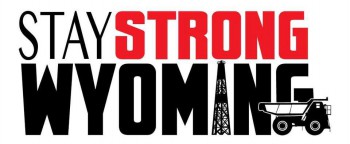(Associated Press, September 9) – Wyoming is appealing Oregon’s recent decision to deny an application to build a coal terminal at the Port of Morrow, on the Columbia River.
Wyoming, the nation’s largest coal-producer, has been pressing for access to ports to export coal to Asia, but it has run into stiff opposition in the Northwest.
Gov. Matt Mead said Monday that Oregon’s decision last month to block an application from a subsidiary of Ambre Energy, an Australian company, to build the terminal at the Port of Morrow violates the U.S. Constitution’s Commerce Clause.
“Coal is the fastest-growing fuel source in the world, and this decision by the state of Oregon prevents Wyoming coal producers from competing in that marketplace,” Mead said.
Julie Curtis, communications manager for the Oregon Department of State Lands, said Monday that in addition to Wyoming’s appeal, the agency had received appeals from the Port of Morrow and from Coyote Island Terminal LLC, an Ambre Energy subsidiary. She said more were possible by day’s end.
“We determined that the project as proposed just wasn’t consistent with the protection, conservation and best use of our state’s water resources,” Curtis said.
But Mead charged that the department denied the application for a removal-fill permit to allow placement of pilings in the river because Oregon officials simply dislike coal.
Everett King, president and CEO of Ambre Energy North America, expressed a similar opinion in a statement Monday announcing his company’s appeal.
“The permitting process for a rail-to-barge facility should be project-specific and not influenced by the commodities involved,” King said. “It’s pretty clear the politics of coal overshadowed this process from the beginning.”
Port of Morrow General Manager Gary Neal said the permit denial sets new regulatory precedent that has the risk of curbing future development opportunities.
“We are appealing so that this political decision does not limit economic opportunity in rural Oregon,” he said in a statement.
Oregon Gov. John Kitzhaber, a Democrat, has been a vocal opponent of the terminal and voiced his support of the agency’s decision in a statement last month. Kitzhaber said Columbia River Tribes have fundamental rights to fisheries, and projects that affect them should be held to a high standard.
The appeals will move through an administrative review process, Curtis said. She said it’s possible the issue ultimately could wind up at the state court of appeals.
Ambre Energy proposed bringing coal by train to Boardman, Oregon, where it would be loaded on barges at the Port of Morrow and sent more than 200 miles down the Columbia River to the Port of St. Helens. There, it would be transferred to oceangoing ships.
The river is the border between Oregon and Washington.
The application to build the coal terminal aroused fierce public opposition, said Brett VandenHuevel, executive director of Columbia Riverkeeper, a watchdog group that fought against the Ambre terminal permit.
“There’s been an overwhelming concern in opposition about sending coal through Oregon down the Columbia River,” VandenHuevel said. “Twenty-thousand people commented on Ambre’s application alone. There was record-setting attendance at public hearings, thousands of health professionals. I’ve never seen anything like it, how much concern there is about this project.”
The Hood River, Oregon, man said his group and others are concerned with all aspects of the proposal to move coal across Oregon and down the Columbia River and will continue to fight it.
“Oregon complied with the law and concluded that a dirty coal export is too harmful for our river and for our salmon fishery,” VandenHuevel said. “Wyoming’s political efforts aren’t going to change that fact.”
